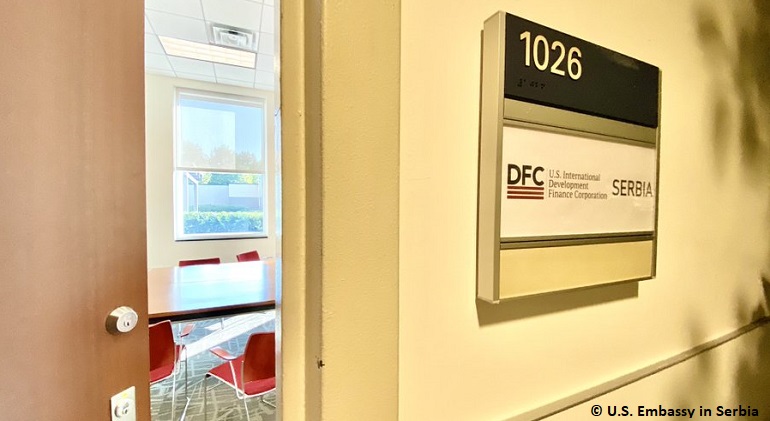

The amazing results of the US-brokered economic normalization talks between Belgrade and Priština in Washington DC on September 4 made major political (and legal) waves, but one specific point made the Balkans and broader European business community hopeful, even in these dire and uncertain pandemic times. The U.S. International Development Finance Corporation (DFC) “is opening its first and only office outside of the United States in Belgrade”, according to Damon Wilson, the Executive Vice President of the Atlantic Council.
U.S. International Development Finance Corporation (DFC) is America’s development bank that brings together the capabilities of OPIC and USAID’s Development Credit Authority.
In addition to other development finance institutions already operating in the region, DFC focuses its efforts to streamline and bolster American support for private-sector projects in emerging markets. Unlike the EIB, which mainly focuses on the support of the continued development and integration of the European Union; the EBRD, one of only two major multilateral development banks oriented towards both private and public sectors; and KFW increasingly active in countries involved in conflict, the DFC will fund project feasibility studies and technical assistance grants and lend in local currency to hedge against currency risk.
The DFC has a $60 billion overall lending capacity, up from OPIC’s $29 billion cap, and a more explicit mandate to focus on low- and middle-income countries. The most notable difference, however, is the DFC’s new capacity to take an equity stake in investments allowing it up to 30% position in any project.
Great expectations
Marko Čadež, the President of the Managing Board of WB6 CIF, emphasized the benefits that DFC is expected to bring to the local SMEs.
„DFC will provide SMEs with better access to financing through its guarantee scheme – cheaper loans, under acceptable conditions, which is a major boon for individual companies as well as a precondition for growth and development of the SME sector which is the backbone of every economy“.
Čadež also mentioned that specific projects were discussed with DFC in energy, food, logistic, and high tech sectors, and emphasized the regional impact of the new office.
„These are not just projects that will affect Belgrade and Priština and strengthening of our ties but will affect the whole Western Balkans region. They will also facilitate the creation of „mini Schengen“, the zone of free trade and free movement of people, goods, services and capital.”
Deputy Prime Minister of Serbia and Minister of Construction, Transport and Infrastructure, Zorana Mihajlović, met with the advisor to the director of DFC Caleb McCarry, with whom she discussed the possibilities of cooperation in the field of infrastructure projects.
“This is a good and important sign for our country and another confirmation of Serbia’s stability. Today we talked about infrastructure projects and the new investment cycle “Serbia 2020-2025”. We believe that there will be opportunities to see more American investments in Serbia,” Zorana said for N1.
Serbian minister and DFC’s delegation will meet in next days to discuss further specific infrastructure projects, concerning both roadways and railways, with the total value of 3.7 billion dollars, according to Zorana Mihajlović’s statement given to RTS.
The Executive Director of the American Chamber of Commerce in Serbia (AmCham), Zoran Petrović had also commented on this game-changing development in a statement for Tanjug.
Zoran Petrović says that “competition is always good and that it forces all parties to work better”. He also states that “Americans always prefer to support private business and private entrepreneurship.”
“It is less known that in our country, they supported the projects of small and medium enterprises and investments in the field of agriculture, through two smaller banks. So far, they have had three mandates, and if I’m not mistaken, they brought about 24 million dollars of investments through them”, says Petrović.
We are waiting to see what outstanding projects the future holds with DFC’s presence in Belgrade.